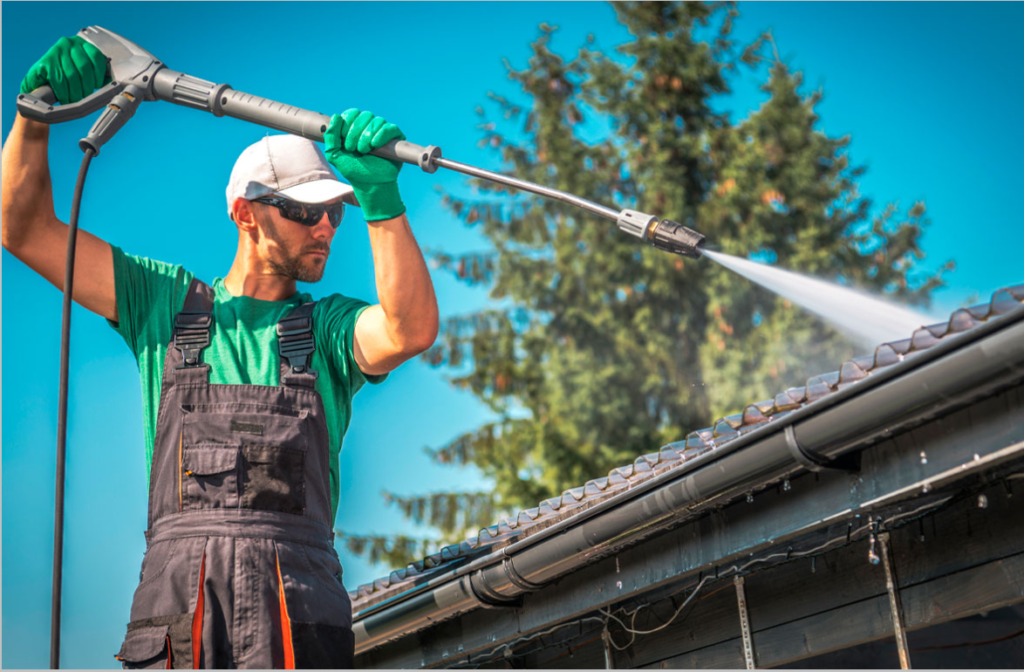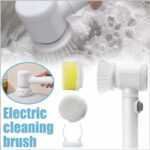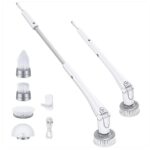Introduction
Roof maintenance is a critical aspect of homeownership, ensuring the longevity and appearance of your home. From traditional shingle roofs to RV rubber roofs, there are various cleaning products and techniques available to address specific needs. In this guide, we will explore a wide range of roof cleaning solutions, including popular products like Spray and Forget, Wet and Forget, and specialized cleaners for metal, tile, and rubber roofs.
Types of Roof Cleaners
1. Spray and Forget Roof Cleaner
Spray and Forget is a revolutionary roof cleaning solution that eliminates the need for scrubbing. This no-rinse formula is designed to remove moss, algae, and stains over time, providing a hassle-free cleaning experience.

2. Wet and Forget Roof Cleaner
Similar to Spray and Forget, Wet and Forget is a versatile cleaner suitable for various roofing materials. It offers a gentle, no-pressure cleaning approach, making it an excellent choice for those looking for long-lasting results without the need for immediate rinsing.

3. Power Washer Roof Cleaner
For more intensive cleaning, especially for metal roofs, a power washer can be effective. However, it’s crucial to adjust the pressure settings to prevent damage to the roof surface. Power washing should be approached with caution and expertise.

4. Rubber Roof Cleaner for RV
RV rubber roofs require specialized care. Look for dedicated rubber roof cleaners that are formulated to clean and condition, protecting against the harsh elements and maintaining the flexibility of the rubber material.

5. Homemade RV Roof Cleaner
For a cost-effective and eco-friendly solution, consider creating a homemade RV roof cleaner using household ingredients. A mixture of white vinegar and water can be gentle yet effective in removing dirt and stains without harming the rubber roof.

Finding the Best Roof Cleaner
1. Consider Roof Material
Different roof materials require specific cleaning approaches. While metal roofs may benefit from power washing, tile roofs may need a more delicate touch. Ensure the chosen cleaner is compatible with your roof material.
2. Reviews and Recommendations
Before purchasing any roof cleaner, read reviews and seek recommendations from homeowners who have similar roof types. This ensures that the product is effective and safe for your specific needs.
3. Eco-Friendly Options
Environmental consciousness is vital in today’s world. Look for roof cleaners with biodegradable and eco-friendly formulations, minimizing the impact on the environment and surrounding vegetation.
Additional Roof Cleaning Tips
1. Safety First
Whether using a power washer or climbing on the roof, prioritize safety. Use appropriate safety gear, follow guidelines, and take necessary precautions to prevent accidents.
2. Professional Services
For complex roof systems or if you’re unsure about the cleaning process, consider hiring professional roof cleaning services. They have the expertise and equipment to ensure a thorough and safe cleaning process.
3. Regular Maintenance
Consistent inspection and maintenance are key to a clean and healthy roof. Regularly check for signs of moss, algae, or damage, and address issues promptly to prevent further deterioration.
Conclusion
Investing time and effort into proper roof cleaning is an essential part of home maintenance. Whether you opt for innovative no-rinse solutions or traditional power washing, maintaining a clean roof not only enhances the aesthetic appeal of your home but also contributes to its overall structural integrity. Choose the right cleaning method based on your roof type, follow safety guidelines, and enjoy a well-maintained roof for years to come.
Always follow manufacturer instructions and safety guidelines when using roof cleaning products and equipment.
What is the best roof cleaner?

When it comes to cleaning roofs, there isn’t a single “best” cleaner that suits every situation. The ideal roof cleaner depends on the type of roof material and the specific issue you’re trying to address. However, I can provide you with some general options that are commonly used for roof cleaning:
Water: In many cases, a simple solution of water and a mild detergent can effectively clean roofs. This method is often used for routine maintenance and removing debris or dirt.
Oxygen bleach: Oxygen bleach, such as sodium percarbonate or hydrogen peroxide, can be an effective cleaner for removing stains, moss, algae, and mildew. It’s generally safer for the environment compared to chlorine bleach.
Chlorine bleach: Chlorine bleach can be used to kill moss, algae, and mildew. However, it should be used with caution as it can harm plants, corrode metal, and discolor some roof materials. Dilute the bleach and follow the manufacturer’s instructions carefully.
Commercial roof cleaners: There are various commercial roof cleaning products available on the market. These products are specifically formulated for different types of roofs and cleaning purposes. Always follow the instructions provided by the manufacturer when using commercial cleaners.
Before using any cleaning solution, it’s important to consider the manufacturer’s recommendations for your specific type of roof. Additionally, take safety precautions such as using protective gear and ensuring proper ventilation during the cleaning process. If you’re unsure about the best approach or have a complex cleaning situation, it’s advisable to consult a professional roof cleaner or a roofing contractor.
If roof cleaner falls, who is responsible?

If a roof cleaner falls while performing their duties, the responsibility for the accident and any resulting injuries or damages will depend on the specific circumstances and applicable laws in the jurisdiction where the incident occurs. Here are a few factors that may determine responsibility:
Employer responsibility: If the roof cleaner is an employee of a company, the employer may bear some responsibility for the accident. Employers have a duty to provide a safe working environment and may be held liable if they failed to provide proper training, safety equipment, or supervision.
Independent contractor responsibility: If the roof cleaner is an independent contractor hired by a property owner, the responsibility may lie with the contractor themselves. Independent contractors are generally responsible for their own safety and may need to carry their own insurance to cover any accidents or injuries that occur while working.
Negligence: If the accident was caused by negligence on the part of the roof cleaner or another party, such as a property owner or manufacturer of faulty equipment, they may be held responsible for the consequences.
Determining liability in such cases can be complex, and it often requires a careful assessment of the facts and applicable laws. If you find yourself in a situation where a roof cleaner has fallen and you believe there may be liability involved, it is advisable to consult with a legal professional who can evaluate the specifics of your case and provide guidance based on the relevant laws in your jurisdiction.





